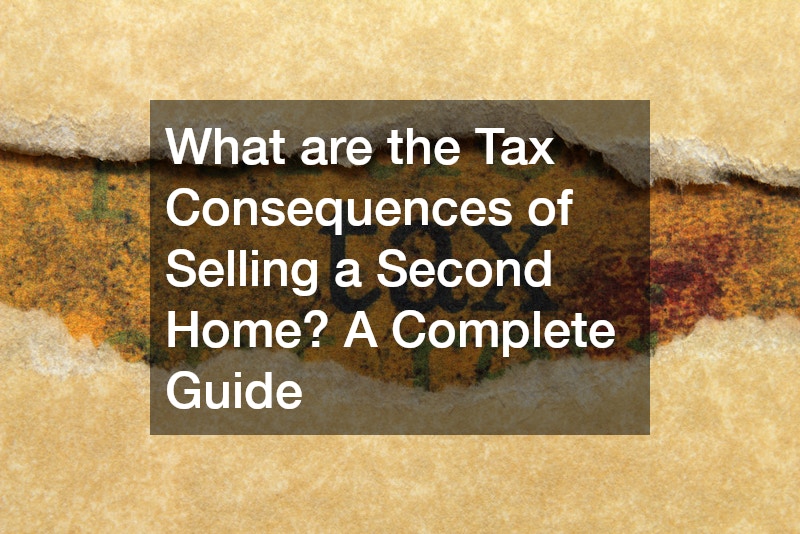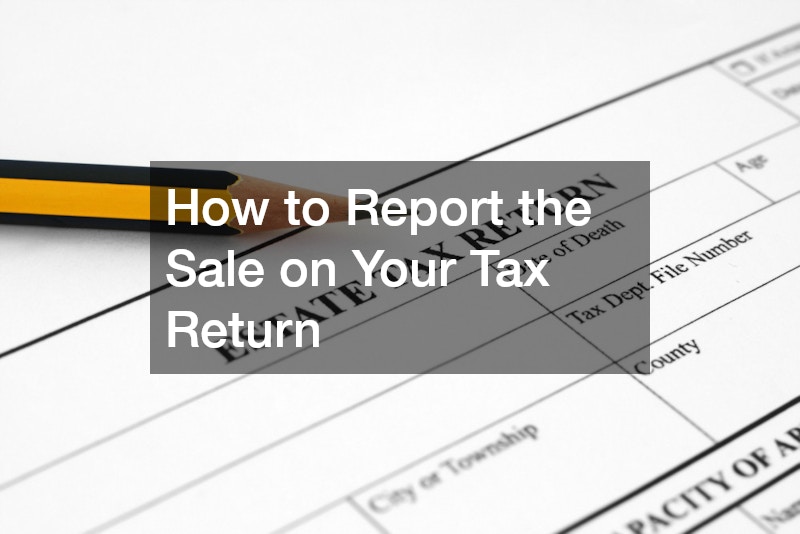Disclaimer: The financial content on this site is for informational purposes only and should not be considered financial or investment advice. Please consult a licensed financial advisor before making any financial decisions.
Selling a second home can be a rewarding financial decision, whether you’re cashing in on a high market, downsizing, or letting go of an inherited property. But what many homeowners and investors overlook are the potential tax consequences involved. Unlike your primary residence, a second home comes with a different set of IRS rules, including capital gains taxes, depreciation recapture, and limited deductions.
This comprehensive guide will walk you through everything you need to know before selling your second home—from how the IRS classifies the property to strategies that may help reduce or defer your tax bill. Whether you own a vacation cottage, rental property, or inherited family home, this article will help you prepare for a financially sound sale.
What Counts as a Second Home?
To understand the tax implications, it’s essential to first clarify what qualifies as a second home in the eyes of the IRS. Generally, a second home refers to any property you own that isn’t your main place of residence. This could include:
- A vacation house used for seasonal getaways
- A property you rent out for income
- A home inherited from the family
- A previous primary residence you no longer live in
Unlike your main home, these properties usually don’t qualify for the Section 121 capital gains tax exclusion, which lets you exclude up to $250,000 (or $500,000 for married couples) in gains from the sale of your primary residence. Because second homes fall outside this exclusion, it’s especially important to understand the tax consequences when planning a sale.
Do You Pay Capital Gains Tax on a Second Home?
In most cases, yes. One of the biggest financial implications of selling a second home is the potential capital gains tax. This tax applies to the profit earned from the sale—that is, the difference between what you received for the home and what you originally paid, factoring in the cost of improvements and selling-related expenses.
How to Estimate Your Capital Gain:
Use this formula to calculate your taxable gain:
Capital Gain = Sale Price – (Original Purchase Price + Qualified Improvements + Selling Expenses)
If your second home’s value has gone up significantly over the years, you may end up owing a sizable amount in taxes.
Capital Gains Tax Rates You Should Know:
- Short-Term Gains (property held for one year or less): Taxed at your regular income tax rate (between 10% and 37%).
- Long-Term Gains (property held for more than one year): Typically taxed at 0%, 15%, or 20%, based on your total income and filing status.
Real-World Example:
Imagine you bought a vacation property for $200,000 a decade ago. Over time, you invested $50,000 in upgrades. You sell the property now for $400,000 and incur $10,000 in selling expenses. Here’s the calculation:
$400,000 – ($200,000 + $50,000 + $10,000) = $140,000
Your taxable capital gain would be $140,000, which would be taxed at the applicable long-term rate for your income bracket.
What If the Property Was Rented Out?
If your second home was used as a rental property, the IRS considers it an investment property, which has even more tax implications.
Key Considerations:
- You may have claimed depreciation over the years, reducing your taxable rental income.
- When you sell, the IRS requires depreciation recapture—you must pay tax on the total depreciation you’ve claimed, at a flat 25% rate.
Example:
If you’ve depreciated $30,000 over time, you’ll owe $7,500 in depreciation recapture taxes.
Additionally, rental income and expenses must be reported annually. When selling, your gain or loss is reported on IRS Form 4797 or Schedule D, depending on your usage.
What Are the Tax Consequences of Selling a Second Home? [Keyword]
The tax consequences of selling a second home vary greatly depending on how the property was used. In general, you can expect to deal with the following:
1. Capital Gains Taxes
As outlined above, gains on second homes are taxable and not eligible for the primary residence exclusion unless specific criteria are met (see next section).
2. Depreciation Recapture
For rental properties, past depreciation deductions are added back and taxed at 25%.
3. State and Local Taxes
Some states also impose capital gains or real estate transfer taxes. Check with your local tax authority or accountant.
4. Net Investment Income Tax
If your income is over $200,000 (single) or $250,000 (married), an additional 3.8% surtax on investment income (including capital gains) may apply.
Can You Avoid Capital Gains Tax on a Second Home?
While you can’t completely avoid capital gains taxes in most cases, there are legal strategies to reduce or defer your tax burden.
1. Convert the Home into a Primary Residence
If you live in the second home for at least 2 of the 5 years before selling, you may qualify for the Section 121 exclusion (up to $250,000/$500,000 in gains). However, the IRS prorates the exclusion if the home was previously rented.
2. 1031 Exchange (Like-Kind Exchange)
If your second home was used as a rental, you might qualify for a 1031 exchange, which allows you to defer capital gains by reinvesting the proceeds in a “like-kind” investment property. Note:
- The new property must be of equal or greater value.
- Strict timelines apply: 45 days to identify a new property and 180 days to close.
3. Offset with Capital Losses
You can use capital losses from other investments to offset gains on your second home.
4. Installment Sale
Spread the gain over several years by structuring the sale as an installment sale. This reduces your tax hit in any one year.
How Does Selling an Inherited Second Home Affect Taxes?
If you inherit a second home and decide to sell it, capital gains are still a factor, but with a twist—you benefit from a stepped-up basis.
Here’s what that means:
- The home’s basis (for calculating gain) is adjusted to the fair market value at the time of inheritance.
- If you sell the home shortly after inheriting it, your capital gain may be minimal or even zero.
However, if the home appreciates further before you sell it, any post-inheritance gains will be taxable.
Example:
You inherit a home worth $300,000. You sell it a year later for $310,000. Your capital gain is only $10,000.
Inherited homes are always treated as long-term assets, regardless of how long you hold them.
How to Report the Sale on Your Tax Return
The IRS requires sellers of second homes to report the transaction accurately. Here’s what you need to file:
For All Second Home Sales:
- Form 8949 – Reports the capital gain or loss.
- Schedule D (Form 1040) – Summarizes your total capital gains and losses.
For Rental Properties:
- Form 4797 – If the home was used for rental income.
- Schedule E (Form 1040) – Reports annual rental income and expenses.
Always keep thorough records:
- Purchase documents and settlement statements
- Receipts for improvements
- Depreciation schedules (if applicable)
- Sale closing statement (HUD-1 or Closing Disclosure)
Tax Planning Tips Before Selling Your Second Home
Smart planning can help you minimize taxes or at least avoid surprises when tax season arrives.
Do This Before You Sell:
- Consult a Tax Professional – Especially if your home was a rental, part of an estate, or has appreciated significantly.
- Get a Home Appraisal – Useful for inheritance situations and 1031 exchanges.
- Track All Improvements – Increases your cost basis and reduces taxable gain.
- Time the Sale Strategically – Selling in a lower-income year can reduce capital gains taxes.
- Plan for Installment Sales – If selling to family or acquaintances, spread payments over time.
Common Mistakes to Avoid When Selling a Second Home
Selling a second home is more complex than it seems. Here are frequent pitfalls:
- Forgetting About Depreciation Recapture – It’s mandatory for rental properties.
- Failing to Report Gains Properly – Even if you think the sale is tax-free.
- Missing 1031 Exchange Deadlines – Timing is everything.
- Neglecting State Taxes – Not all states follow the same rules as the IRS.
- Not Considering the Net Investment Income Tax – High earners should plan ahead.
When Should You Talk to a Tax Professional?
While general information is helpful, nothing beats personalized advice. You should talk to a CPA or tax advisor if:
- You’ve rented the property at any point
- You’ve inherited the home
- You’re considering a 1031 exchange
- You expect large capital gains
- You own multiple properties
A tax professional can run the numbers, prepare the necessary forms, and even help you structure the sale in a tax-efficient manner.
Final Thoughts
Selling a second home brings financial rewards—but also IRS scrutiny. Understanding how capital gains tax, depreciation recapture, and reporting rules work is essential for anyone looking to avoid surprises. Whether you’re a homeowner selling a vacation property or an investor cashing out on a rental, the tax consequences can be significant.
The good news? With smart planning, you can reduce or defer your tax liability and keep more of your profit. The key is to know your property type, keep thorough records, and seek professional guidance before you list your home.


